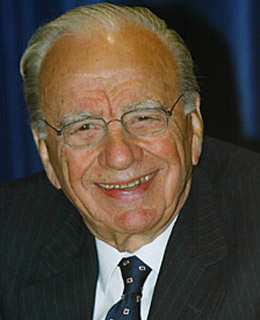
it's often said—sometimes scornfully, sometimes admiringly, but always with a hint of awe—that Rupert Murdoch has exercised more power over a longer tenure than any business leader in the world today. The chairman and CEO of News Corp. is too politic to make such a claim himself, but he tacitly acknowledges its validity. When asked what he has learned about being so powerful in the U.S., he smiles and says, "You make a lot of enemies."
Murdoch's critics are certainly legion. Most of them are fixated, in this election year, on Fox News and its conservative agenda. But in terms of Murdoch's real influence—not to mention his bottom line—nothing emanating from Roger Ailes' cable channel remotely compares to News Corp.'s $6.6 billion takeover of satellite broadcaster DirecTV. The deal, approved by regulators in December, extends Murdoch's globe-spanning satellite empire to North America; bolsters his strategy of marrying distribution and content; and seems to have triggered, as his maneuvers often do, another tectonic shift in the communications landscape. Why is Comcast suddenly bidding for Disney and Viacom eyeing the cable industry? Because on the billiard table that is the media business, Murdoch is the cue ball. Everything he does creates a chain reaction, often leading to unexpected combinations.
Murdoch's role in the political arena is similarly catalytic. Though he leans more right than left, he is less a partisan ideologue than a partisan of the market. And though Fox News succors Republicans, its true significance is broader: it points to a future in which media are more targeted and more blatant about their biases. It's too early to know if Al Franken's stab at liberal radio will thrive or if Al Gore's liberal cable channel will ever get off the ground, but both are Murdoch ricochets, for better or for worse.
In April, Murdoch announced that he was moving News Corp.'s official base of operations from Australia to New York City—thus completing his Americanization, which began 19 years ago when he became a U.S. citizen. With Murdoch now 73, his reign might be seen to be nearing its end; his two sons Lachlan and James stand poised to take his place at the company's helm. But the old man still seems frisky and in no hurry to step aside. And until he does, he'll continue to play the role he clearly relishes: powerful, vilified and, most of all, imitated.
Heilemann is a journalist and author of Pride Before the Fall
From the Archives
The New Class Action: In the post-Enron era, prime time rediscovers that the rich and the poor really are different